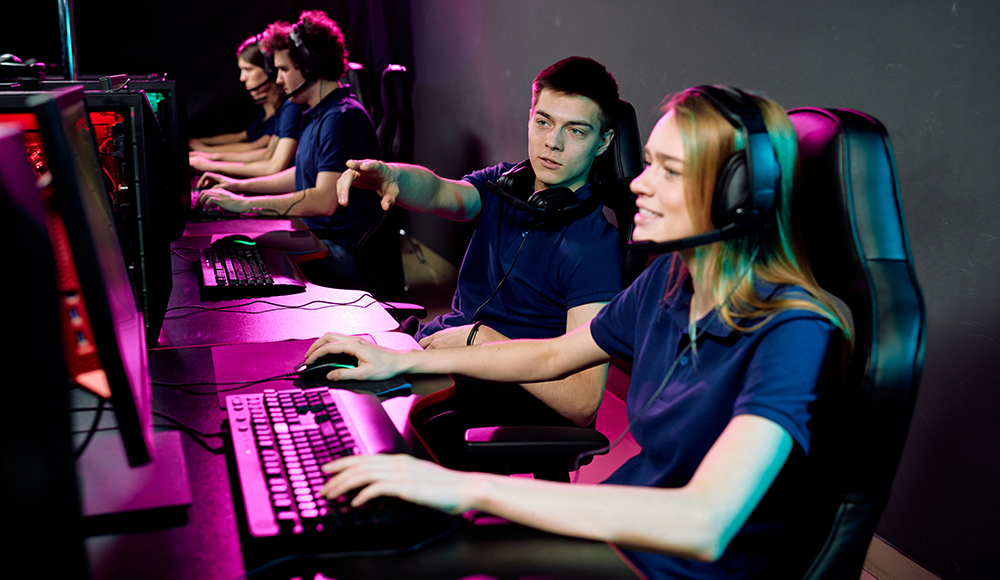Video games are one of the most popular forms of entertainment worldwide, with billions of people engaging in them regularly. While many view video games simply as a pastime or leisure activity, they can have significant effects on cognitive development and social skills. Over the years, research has shown that video games—especially those that are well-designed—can enhance various mental abilities, improve problem-solving skills, and even foster better communication and teamwork among players.
In this article, we will explore how video games can influence cognitive development and social skills, discussing the benefits and potential drawbacks of this increasingly popular form of entertainment.
The Cognitive Benefits of Video Games
- Improved Problem-Solving Skills: Many video games, particularly strategy games, require players to think critically and solve complex problems. Games that involve puzzles, resource management, or tactical decision-making encourage players to develop analytical thinking and adapt to changing situations. Players often need to evaluate different solutions and make quick decisions, which can translate into improved problem-solving abilities in real-world scenarios. For instance, games like Portal or The Legend of Zelda require players to solve intricate puzzles and think strategically to progress through the levels. These types of games encourage creative problem-solving and out-of-the-box thinking.
- Enhanced Memory and Concentration: Video games can also help improve memory and concentration. Many games require players to remember important details, follow complex narratives, or manage multiple tasks simultaneously. Action games, for example, require fast reflexes and concentration on various aspects of the game, such as the position of enemies or the timing of movements. Studies have shown that certain types of video games, especially action-packed games, can enhance working memory and visual-spatial skills. Games like Call of Duty or Fortnite challenge players to keep track of rapidly changing events, boosting their attention span and focus over time.
- Spatial Awareness and Coordination: Video games that involve three-dimensional environments, like driving or flight simulators, can enhance players’ spatial awareness and hand-eye coordination. These games help improve the ability to navigate complex spaces and respond to physical and visual cues quickly. Players must judge distances, anticipate movements, and understand the positioning of objects in a virtual environment. Racing games such as Mario Kart or Gran Turismo help players refine their spatial awareness, and these skills can be beneficial in everyday tasks such as driving or even sports.
- Boosting Creativity and Imagination: Many video games—especially role-playing games (RPGs) and sandbox games—encourage players to use their imagination. In RPGs like Skyrim or The Witcher, players create their own adventures within expansive, open worlds. These games allow players to shape the game environment and follow their creative instincts. Sandbox games like Minecraft take creativity to the next level by allowing players to build their own virtual worlds. These kinds of games can stimulate the imagination, offering a platform where players can construct, design, and explore new ideas without limitations.
- Improved Multitasking and Cognitive Flexibility: Video games often require players to manage multiple tasks simultaneously. Action and strategy games, for instance, demand quick thinking and the ability to shift focus between different objectives. This fosters cognitive flexibility, allowing players to switch between tasks and adapt to new challenges more effectively. Games that require resource management, like Starcraft or SimCity, teach players how to balance competing priorities, make decisions under pressure, and consider long-term effects of their actions.
Social Benefits of Video Games
- Teamwork and Collaboration: Many multiplayer online games require players to work together as a team to achieve shared goals. These games often emphasize collaboration, communication, and strategic planning. Whether it’s coordinating attacks in games like League of Legends or working together in a raid in World of Warcraft, players must learn how to work effectively as part of a team. These games encourage cooperation, listening skills, and leadership, which are important in both personal and professional environments. Players who work together to achieve common goals often experience a sense of camaraderie and shared accomplishment, which can translate into stronger social bonds.
- Improved Communication Skills: Online multiplayer games often require players to communicate effectively with others. Whether it’s coordinating strategy, sharing information, or solving problems together, communication is key to success in these games. Many games offer voice chat or in-game messaging systems that enable real-time interaction between players from all over the world. This interaction can help improve players’ verbal and written communication skills, making them better equipped to collaborate in real-life settings. Social gaming can also foster cultural exchange and improve understanding between people from different backgrounds and countries.
- Building Friendships and Social Connections: Video games provide an opportunity to meet and interact with people who share similar interests. Online multiplayer games, gaming communities, and esports tournaments have created global networks where players can connect with others, form lasting friendships, and share experiences. Many people have built meaningful relationships through gaming, from casual acquaintances to close friendships. For some, gaming has been a way to connect with people when they might otherwise feel isolated, whether due to geographic location, social anxiety, or other factors.
- Conflict Resolution and Emotional Regulation: In the competitive world of online gaming, players are bound to face challenges and disagreements. Navigating these situations can help players improve their conflict resolution and emotional regulation skills. Learning how to manage frustration, accept failure, and work through disagreements is an important aspect of gaming. Games that involve competitive play, such as FIFA or Overwatch, teach players how to handle losses gracefully and stay motivated despite setbacks. The ability to regulate emotions and work through challenges is essential in both gaming and real-life situations.
- Cultural Awareness and Global Connection: Many multiplayer games bring together people from different parts of the world, allowing players to interact with others from diverse cultural backgrounds. This global interaction can help increase cultural awareness, empathy, and understanding. Players who interact with others from different countries and cultures may develop a broader perspective, gaining a better understanding of global issues and learning about traditions and customs from around the world. Games like World of Warcraft and Fortnite have global player bases, encouraging international friendships and collaborations.
Conclusion
Video games, often perceived as purely entertainment, can have a profound impact on cognitive development and social skills. From enhancing memory, problem-solving abilities, and spatial awareness to fostering teamwork, communication, and global connections, gaming has a range of benefits that extend beyond entertainment.
However, it’s important to note that moderation is key. While video games can offer numerous advantages, excessive gaming may lead to negative consequences, such as social isolation or addiction. The key lies in finding a healthy balance between gaming and other aspects of life.
Ultimately, when approached in a balanced and mindful way, video games can be a valuable tool for cognitive development and a powerful medium for building social connections in an increasingly digital world.




